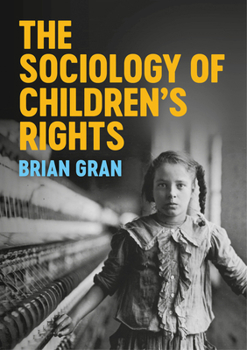The Sociology of Children's Rights
Select Format
Select Condition 
Book Overview
Children's rights appear universal, inalienable, and indivisible. They are intended to advance young people's interests, especially the welfare of vulnerable children. Yet in practice, evidence suggests the contrary: the international framework of treaties, procedures, and national policies contains fundamental contradictions that weaken commitments to children's real-world protections.
With insightful detail, Brian Gran helps us understand what is at stake when children's rights are compromised. The text grounds readers in core theories and key data about children's legal entitlements and their complex role in emerging tensions, institutions, and socio-political spheres. The chapters tackle central questions about what rights accrue to young people, whether they advance equality, and how they influence children's identities, freedoms, and societal participation. Ultimately, this book illuminates the ways in which current frameworks hinder young people from possessing and benefiting from human rights, arguing that they function as cynical invitations to question if we truly believe children are endowed with human rights.
The Sociology of Children's Rights offers a critical and accessible introduction to understanding a complex issue in the contemporary world, and is a compelling read for students and researchers concerned with human rights in sociology, political science, law, social work, and childhood studies.
With insightful detail, Brian Gran helps us understand what is at stake when children's rights are compromised. The text grounds readers in core theories and key data about children's legal entitlements and their complex role in emerging tensions, institutions, and socio-political spheres. The chapters tackle central questions about what rights accrue to young people, whether they advance equality, and how they influence children's identities, freedoms, and societal participation. Ultimately, this book illuminates the ways in which current frameworks hinder young people from possessing and benefiting from human rights, arguing that they function as cynical invitations to question if we truly believe children are endowed with human rights.
The Sociology of Children's Rights offers a critical and accessible introduction to understanding a complex issue in the contemporary world, and is a compelling read for students and researchers concerned with human rights in sociology, political science, law, social work, and childhood studies.
Format:Paperback
Language:English
ISBN:1509527850
ISBN13:9781509527854
Release Date:February 2021
Publisher:Polity Press
Length:176 Pages
Weight:0.80 lbs.
Dimensions:0.9" x 5.7" x 8.2"
Customer Reviews
0 rating





